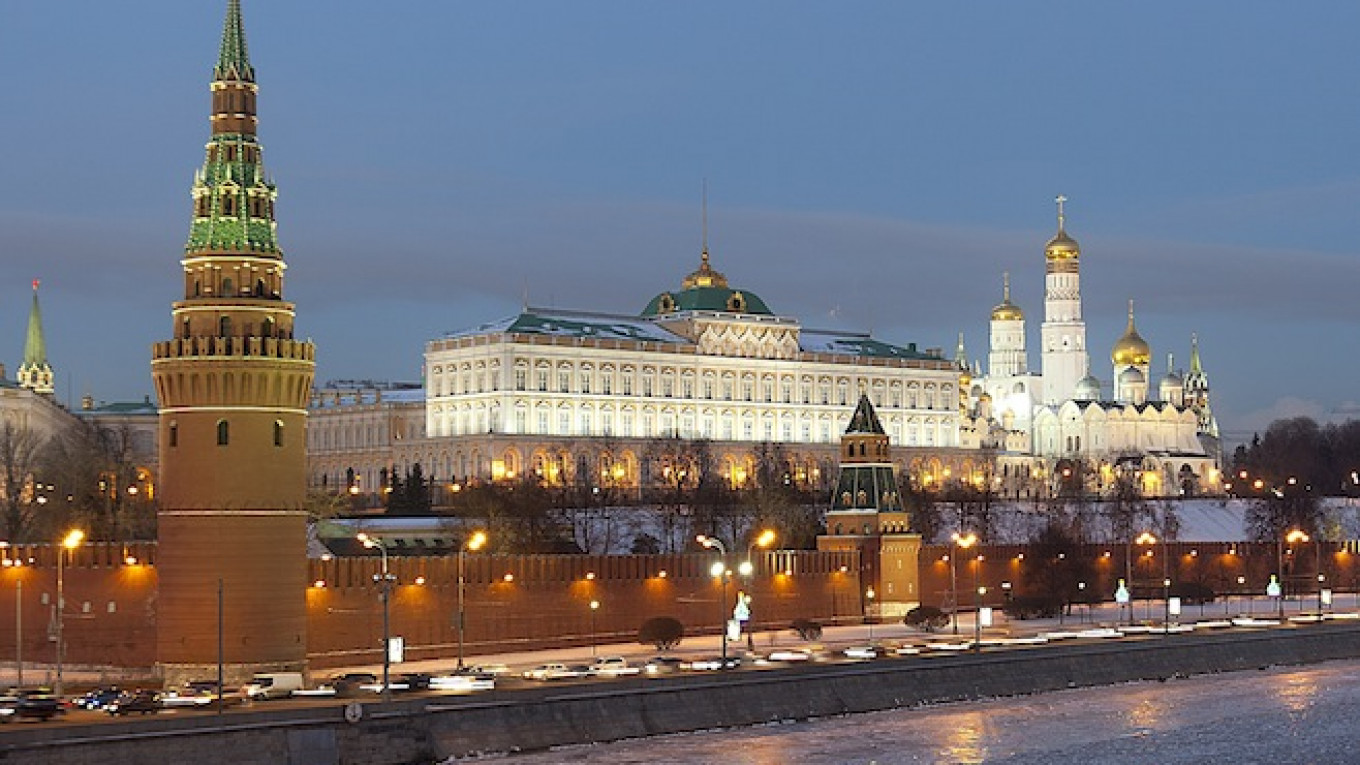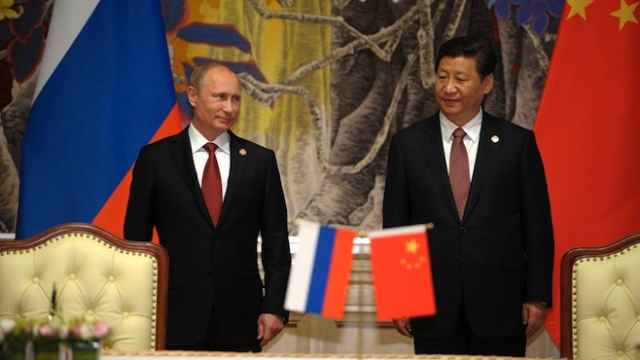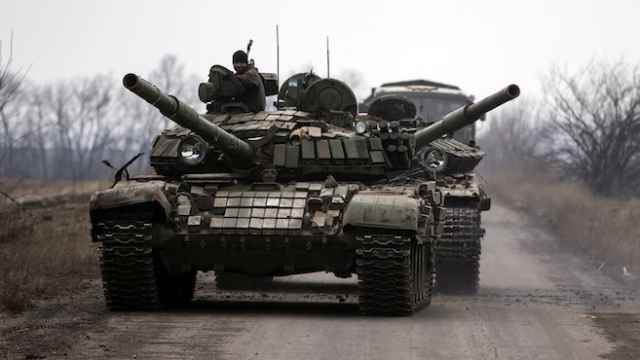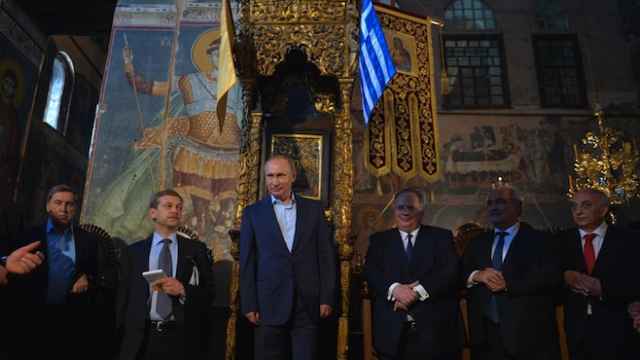
Gleb Pavlovsky
About 20 years ago, a senior Kremlin official asked me the meaning of the word "de-politicization." I told him it is when the news bulletins cover whatever we cook up here in the Kremlin, and the public sets about discussing it. I had no idea it would actually happen — much less so quickly.
De-politicization is the process of denuding the political landscape to leave all decisions and authority in the hands of a single leader. By stripping away all other players and maintaining a monopoly over the political agenda, such regimes effectively hide most of their workaday policies from the populace, leaving society unprepared for the changes that must inevitably come.
Back when we in the Kremlin were moving toward the de-politicization of Russia, we more or less tried to avoid giving in to the age-old Russian temptation of taking unconstitutional measures with regard to power. But we failed to realize that an atmosphere of de-politicization darkens the national leaders' thinking and prompts them to have dangerous reveries and grim fantasies.
Thus, instead of lazily preparing for the next elections, Russian society is now compelled to discuss revolution, military coups and the replacement of the federation by the empire. The politics dried out, and Putin alone commands everyone's attention — simply because there is no one else to discuss and natural human curiosity demands it. In fact, Putin will remain an object of interest until he clearly loses all ability to make major decisions.
Back in those early years of stability, we feared essentially just one thing: that a single individual might leave the Putin consensus and openly challenge the status quo. Now such challenges appear almost weekly, on all fronts. Take, for example, a legislative assembly deputy in Krasnoyarsk who speaks out against Chechen leader Ramzan Kadyrov, or Kadyrov himself, who behaves like the tsar of some mountaintop Kremlin. Protesting truckers never sparked the public support they had hoped for, but they did manage to shake the Kremlin walls. Political liabilities spring up constantly, either in the form of outspoken former archpriest Vsevolod Chaplin, or the hastily formed National Guard. And the list goes on.
In 2012, having made a cautious start toward ending de-politicization, Putin could have taken one of two paths: gradually bringing the Constitution back into force or deliberately giving selected conflicts greater emphasis. He chose the latter, launching his campaign of "pinpointed tyranny" in 2012 with the Pussy Riot case, the so-called Dima Yakovlev laws, which banned U.S. adoption of Russian children, the crackdown on the Bolotnoye protestors and the orchestrated hysteria over Ukraine. He deliberately antagonized conflicts until they became full-fledged divisions.
Russia has developed a sort of double-layered agenda. On the upper layer is unanimity of the overwhelming majority. Its logical culmination is parliament passing some measures without a single dissenting voice. But on the lower layer of Putin's power vertical, local siloviki groups are locked in an ongoing power battle. The symbolic wars that Russia engaged in required real-life battlefield victories — which sometimes appeared differently on military fields and on state-owned television. It was quickly discovered that managing targeted politicization required a version of the Soviet-era State Planning Committee. That is, an agency more complex than today's presidential administration.
That was when part of the political machinery was transformed into the manageable and moderate "opposition." It was in that mode that United Russia, as the party of power, held its recent primaries. But what exactly sparked the politicization of society — the primaries themselves or the scandals around them? Everything about those primaries went wrong. One conflict after another arose, as if the authorities deliberately set out to offend all of the factions that had traditionally shown loyalty to them. That is a sign of new politicization.
The power of time, the inevitableness of the future has been replaced by the power of Putin's popularity ratings. Now the authorities believe that they have no need to change their policies unless Putin's ratings fall dramatically. But it is precisely their deep aversion to change that forces those ratings to remain high.
Yet, even if Putin's ratings do not fall, he is powerless to stop the Russian people from worrying over their suddenly very uncertain future. All attempts by the authorities to make us gaze hypnotically at the figures 2018 and 2024, the dates of presidential elections, that Russian society is not supposed to take part in — as if those distant dates were a panacea for today's ills — have so far failed.
What will happen when the current trend toward de-politicization goes belly up? This is a very serious question. Russia is now on an express highway that allows for no backtracking and could easily lead to an even worse state of affairs than exists now. Leaders are rapidly losing the opportunity to make changes through purely political action — and that includes political action at all levels and among all parties.
Will the Kremlin place at least a modicum of faith in the legal procedures enshrined in the Constitution, and thereby avert disaster?
Gleb Pavlovsky is political analyst and former Kremlin adviser.
A Message from The Moscow Times:
Dear readers,
We are facing unprecedented challenges. Russia's Prosecutor General's Office has designated The Moscow Times as an "undesirable" organization, criminalizing our work and putting our staff at risk of prosecution. This follows our earlier unjust labeling as a "foreign agent."
These actions are direct attempts to silence independent journalism in Russia. The authorities claim our work "discredits the decisions of the Russian leadership." We see things differently: we strive to provide accurate, unbiased reporting on Russia.
We, the journalists of The Moscow Times, refuse to be silenced. But to continue our work, we need your help.
Your support, no matter how small, makes a world of difference. If you can, please support us monthly starting from just $2. It's quick to set up, and every contribution makes a significant impact.
By supporting The Moscow Times, you're defending open, independent journalism in the face of repression. Thank you for standing with us.
Remind me later.








